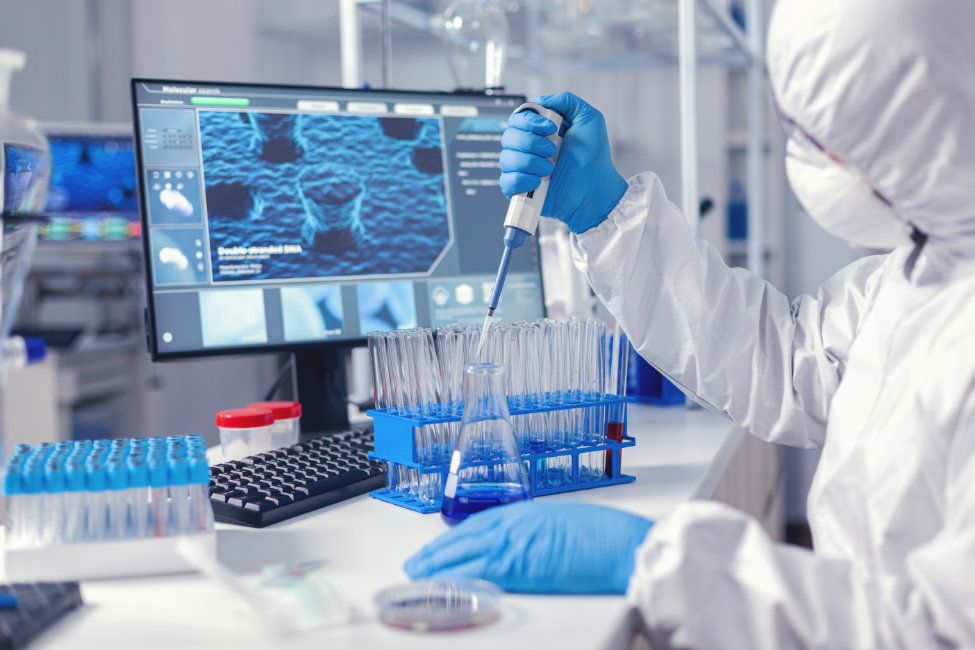CC BIOTECH(THAILAND) CO.,LTD
From Lab to Table: The Role of Biotech in Shaping the Future of Food Security

In an era where the global population is on the rise, and climate change is affecting traditional agriculture, biotechnology emerges as a beacon of hope. The focus keyphrase “Biotech Food Security” encapsulates the essential role of biotechnological innovations in ensuring a sustainable and secure food supply for the future.
Understanding the Impact of Biotechnology
The Science Behind Biotech Crops
Biotechnology in agriculture involves the manipulation of living organisms to develop or modify products, improve plants or animals, or develop microorganisms for specific agricultural uses. Genetically modified (GM) crops, designed for increased yield, disease resistance, and climate resilience, are at the forefront of this revolution.
Advancements in Genetic Engineering
The application of CRISPR-Cas9 and other gene-editing technologies has accelerated the development of GM crops. These advancements enable precise modifications to the genetic makeup of crops, ensuring they can withstand environmental stresses such as droughts, pests, and diseases.
The Role of Biotech in Enhancing Food Security
Increasing Crop Yields
Biotechnological interventions have proven successful in significantly increasing crop yields. By developing crops that are resistant to pests and diseases, biotechnology reduces the reliance on chemical pesticides, leading to more sustainable agricultural practices.
Reducing Post-Harvest Losses
Biotech crops can be engineered to have a longer shelf life, which is crucial in reducing post-harvest losses. This not only ensures that more food reaches consumers but also helps in stabilizing prices in the market, making food more affordable.
Addressing Nutritional Challenges
Biofortification: A Path to Nutritional Security
Biofortification, the process of enhancing the nutritional value of crops through biotechnology, addresses the global challenge of micronutrient deficiencies. By increasing the content of essential vitamins and minerals in crops, biotechnology plays a pivotal role in improving the nutritional status of populations, especially in developing countries.
The Promise of Golden Rice
Golden Rice, genetically modified to produce beta-carotene, a precursor of vitamin A, exemplifies the potential of biotechnology to address nutritional deficiencies. This innovation offers a sustainable solution to vitamin A deficiency, which is a major public health issue in many parts of the world.
The Environmental Benefits of Biotechnology
Reducing the Environmental Footprint of Agriculture
Biotech crops require fewer inputs, such as water and fertilizers, and can be cultivated using more environmentally friendly farming practices. This not only conserves resources but also mitigates the environmental impact of agriculture, contributing to the sustainability of food production systems.
Biotechnology and Climate Change
Biotech crops, designed to be more resilient to the changing climate, are essential in the fight against global warming. By ensuring crop productivity despite fluctuating environmental conditions, biotechnology supports food security in the face of climate change.
Navigating the Challenges
Ethical and Safety Considerations
The deployment of biotechnology in agriculture raises ethical questions and safety concerns. Rigorous testing, transparent regulation, and public engagement are crucial to address these concerns and build trust in biotech solutions for food security.
The Path Forward
Investment in research and development, coupled with policies that support the adoption of biotech innovations, is essential to fully realize the potential of biotechnology in securing the world’s food supply.
Conclusion
Biotechnology holds the key to addressing some of the most pressing challenges of our time, including ensuring food security for a growing global population. By leveraging the power of genetic engineering, biotech crops can provide sustainable, nutritious, and resilient food sources. As we navigate the complexities and challenges of this technology, the promise of biotech remains a vital piece in the puzzle of global food security.

Focus on product research and development and technological innovation
Developed ferritin, bovine insulin, etc.
Sitemap
Contact Details
- 130/596 Moo.3 Tambol Wangchula Amphur Wangnoi Phranakhon Sri Ayucthaya
- (+66)92 006 9500
- (+66)95 585 7290
- qingyu@ccbiocp.com
CC BIOTECH (THAILAND) CO., LTD.
Copyright © 2024 All rights reserved.


